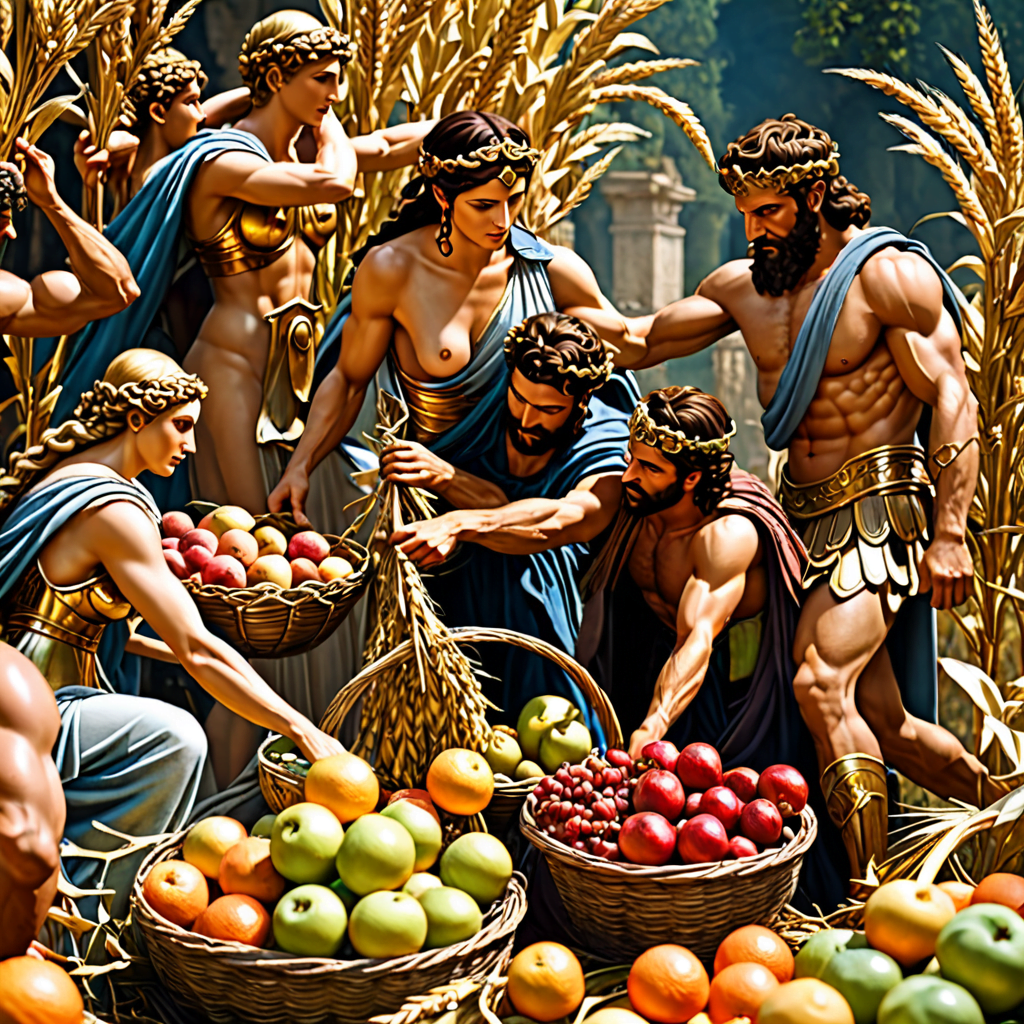Roman Mythology: Gods of Harvest and Fertility
Roman mythology is rich with tales of numerous gods and goddesses ruling over various aspects of life. In the realm of agriculture and fertility, several deities hold significant importance. Let’s delve into the revered gods of harvest and fertility in Roman mythology.
Ceres – Goddess of Agriculture and Grain
Ceres, equivalent to the Greek goddess Demeter, is deeply revered as the goddess of agriculture, fertility, and grain in Roman mythology. She is depicted as a benevolent figure, nurturing the earth to ensure bountiful harvests. Farmers and agricultural communities paid homage to Ceres, seeking her blessings for fertile fields and abundant crops. Offerings and celebrations were dedicated to Ceres during planting and harvest times to ensure agricultural prosperity.
Saturn – God of Agriculture and Liberation
Saturn, often associated with the Greek god Cronus, holds a dual significance as a god of agriculture and liberation in Roman mythology. He is celebrated during the Saturnalia festival, a time of revelry and freedom from social norms, where slaves were briefly treated as equals. Saturn’s agricultural role symbolizes the abundance of the earth and the importance of sowing and reaping in the cyclical nature of life.
Pomona – Goddess of Orchards and Fruit
Pomona is revered as the goddess of orchards, fruit trees, and gardens in Roman mythology. As a symbol of bounty and fertility, she embodies the fruitful abundance of nature. Pomona protected and nurtured fruit trees, ensuring their growth and the sweetness of their produce. Farmers and gardeners honored Pomona to secure fruitful harvests and flourishing orchards.
Faunus – God of Nature and Fertility
Faunus, also known as the Greek god Pan, rules over nature, forests, and fertility in Roman mythology. As a pastoral god, Faunus is associated with the wilderness, fertility of the land, and the protection of wildlife. Herders and farmers sought Faunus’ favor for fertile land, healthy livestock, and prosperity in their rural pursuits. Faunus’ presence in nature signified the interconnectedness of all living beings in the cycle of life and fertility.
These revered gods and goddesses of harvest and fertility in Roman mythology exemplify the deep-rooted connection ancient Romans had with the land, agriculture, and the cycles of nature. Their stories continue to captivate minds and serve as cultural markers of respect for the earth’s bounty and the importance of fertility in human life.
FAQs about Roman Mythology: Gods of Harvest and Fertility
Who were the main Roman gods associated with harvest and fertility?
In Roman mythology, the main gods associated with harvest and fertility were Ceres, the goddess of agriculture, grain crops, fertility, and motherly relationships, and Saturn, the god of agriculture and liberation.
What role did Ceres play in Roman mythology?
Ceres played a significant role in Roman mythology as the goddess of agriculture and fertility. She was believed to have taught humans how to cultivate and grow crops, ensuring abundant harvests.
How was Saturn connected to harvest and fertility in Roman mythology?
Saturn, known as the god of agriculture and liberation, was associated with the Golden Age, a time of peace, prosperity, and harmony on Earth. His reign was linked to abundant harvests and fertility of the land.
Did the Romans have any rituals dedicated to these gods of harvest and fertility?
Yes, the Romans celebrated the festival of Saturnalia in honor of Saturn and the Cerealia in honor of Ceres. These festivals involved rituals, feasting, and offerings to ensure bountiful harvests and fertility in the coming year.
What symbols were associated with Ceres and Saturn in Roman mythology?
Ceres was often depicted with a cornucopia (horn of plenty) filled with



